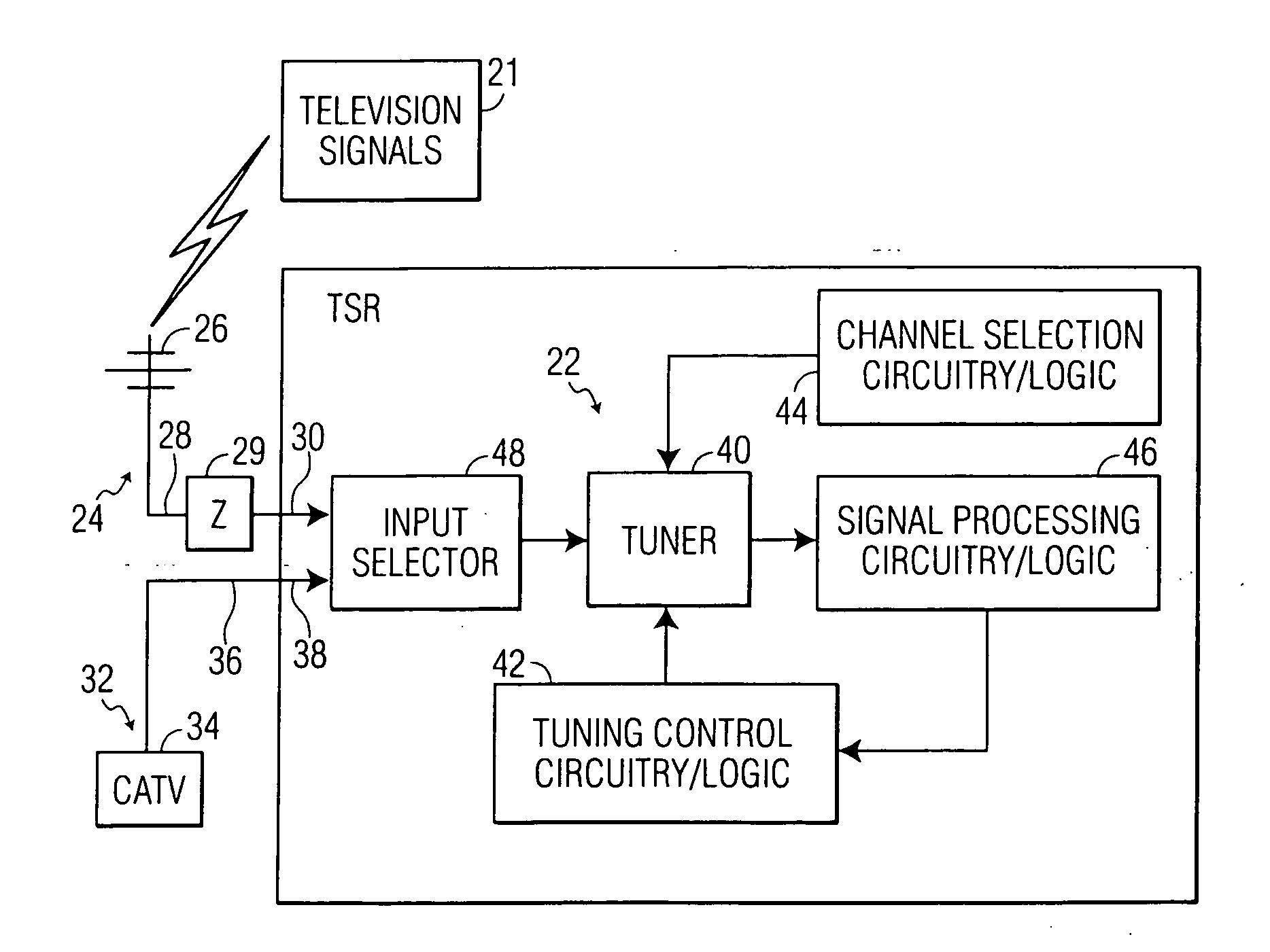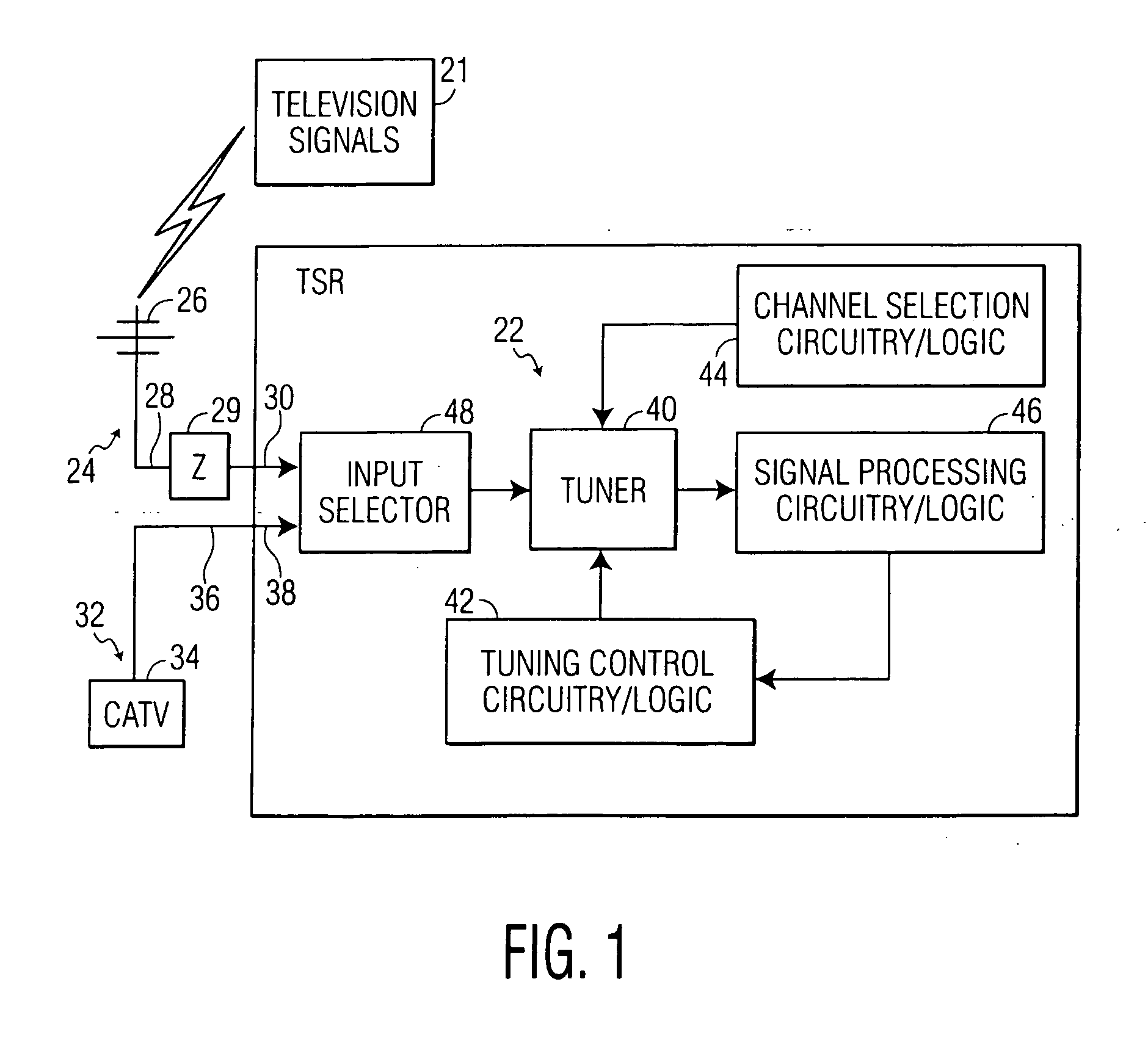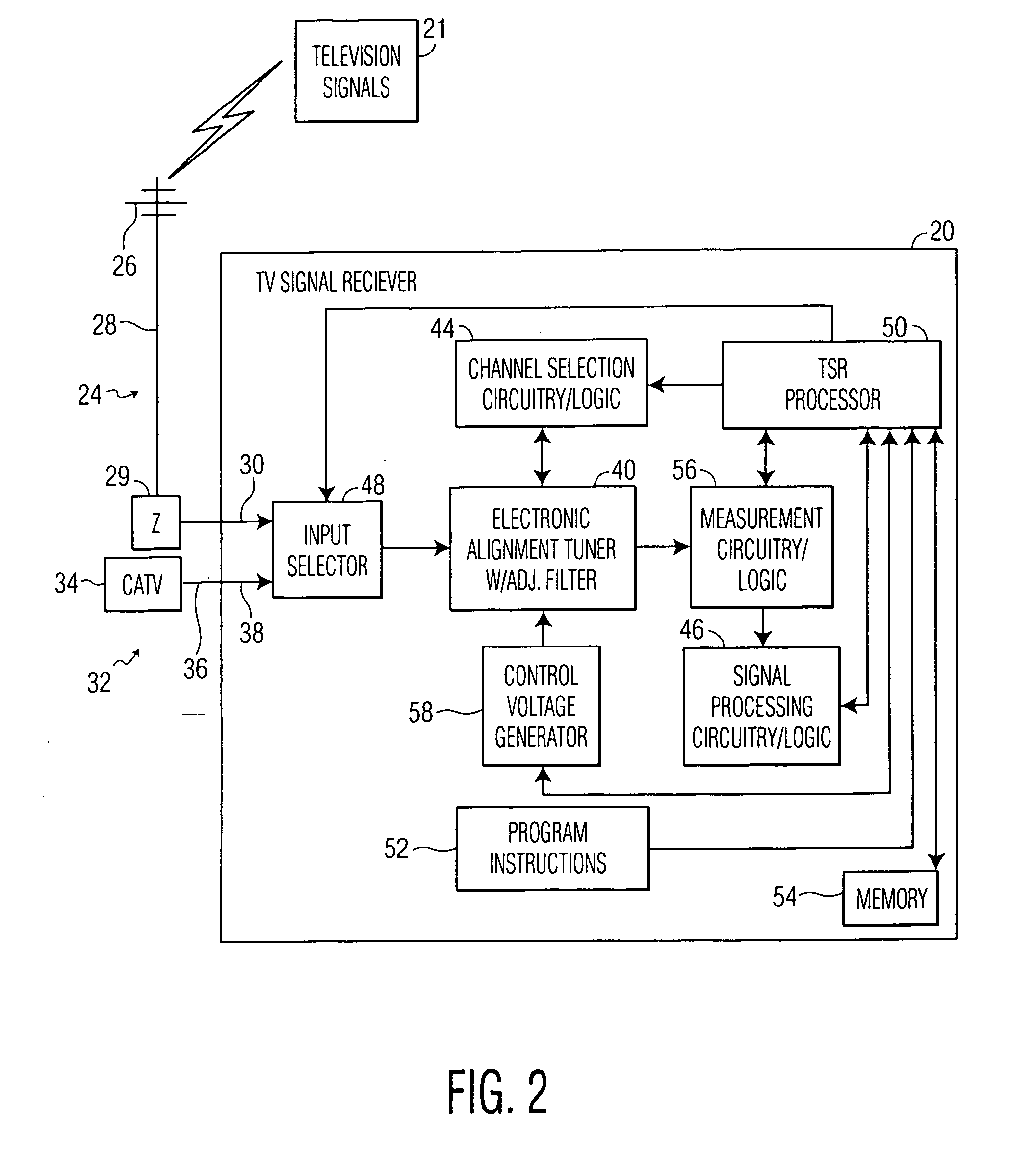Tuner input filter with electronically adjustable response for adapting to antenna characteristic
a technology of input filter and response, which is applied in the direction of continuous tuning, television system, selective content distribution, etc., can solve the problems of incorrect bandwidth base, and inability to provide a good 75 ohm sour
- Summary
- Abstract
- Description
- Claims
- Application Information
AI Technical Summary
Benefits of technology
Problems solved by technology
Method used
Image
Examples
Embodiment Construction
)
[0026]Referring now to FIG. 1, there is depicted a block diagram of an RF signal receiver 20 to which the subject invention pertains. The RF signal receiver 20 is preferably, but not necessarily, of the type that accepts connection to an antenna of an unknown impedance by the user for RF signal reception rather than utilizing a fixed, known impedance antenna. The RF signal receiver 20 may be, and thus is representative of, any type of RF signal receiver such as a television, radio, VCR, television signal receiver, cellular phone, wireless local area network, or the like, to which a user may attach an antenna and typically an external antenna for receiving the RF signals. In the following description of an exemplary embodiment of the invention, a television receiver is described as a representative example of a system suitable for incorporating principles of the invention. However, the principles discussed herein in the context of a television receiver apply to any form of RF signal...
PUM
 Login to View More
Login to View More Abstract
Description
Claims
Application Information
 Login to View More
Login to View More - R&D
- Intellectual Property
- Life Sciences
- Materials
- Tech Scout
- Unparalleled Data Quality
- Higher Quality Content
- 60% Fewer Hallucinations
Browse by: Latest US Patents, China's latest patents, Technical Efficacy Thesaurus, Application Domain, Technology Topic, Popular Technical Reports.
© 2025 PatSnap. All rights reserved.Legal|Privacy policy|Modern Slavery Act Transparency Statement|Sitemap|About US| Contact US: help@patsnap.com



